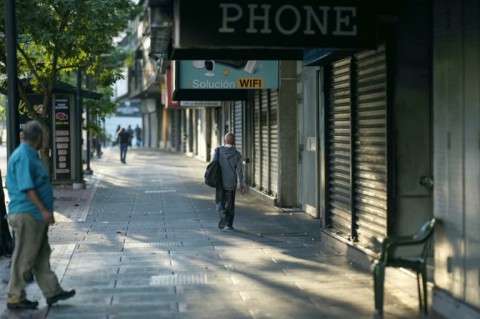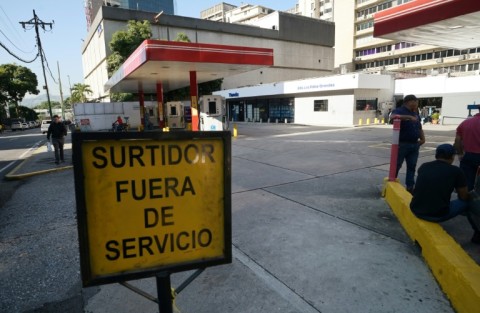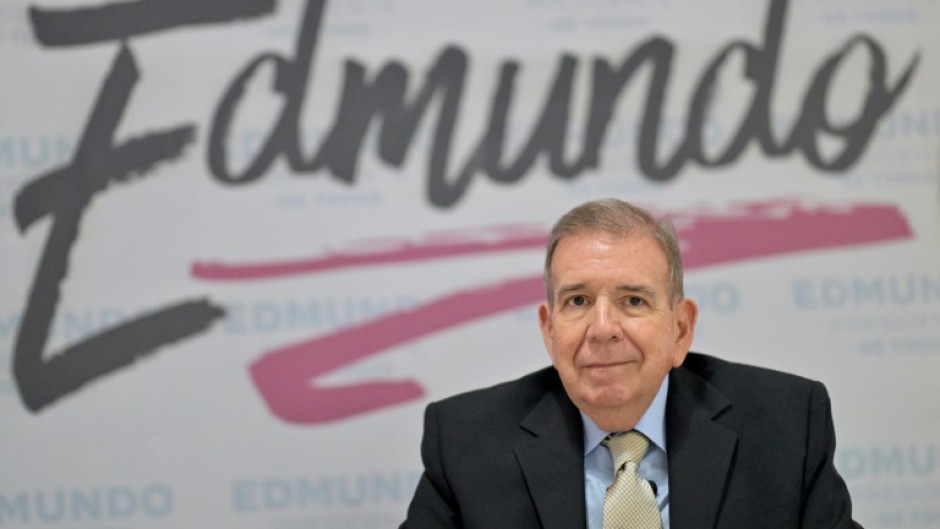CARACAS - A blackout left most of Venezuela without power Friday in what authorities blamed on sabotage of the national electrical grid -- the latest crisis to hit the oil-rich country after a disputed presidential election.
Venezuela experiences frequent blackouts, which President Nicolas Maduro's government routinely attributes to unproven conspiracies to overthrow him.
"We are reporting that at approximately 4:40 am (0840 GMT) today, Friday, August 30, an electrical sabotage took place in Venezuela ... which has affected almost the entire national territory," Communications Minister Freddy Nanez told the state-run VTV channel.
"All 24 states are reporting total or partial loss of electricity supply," he said.
The worst countrywide outage to strike Venezuela, in March 2019, lasted several days.
"It's complicated to get around without electricity. We don't know what's going to happen during the day," said Anyismar Aldana, a 27-year-old cashier on her way to work in Caracas, in the working-class neighborhood of Petares.
"People are afraid that it will happen again (like in 2019)." When the power goes out "we don't work, we don't know what to do for food," she added.
Western regions such as Tachira and Zulia, once capitals of the oil industry, experience daily power outages.
Bereniz Hernandez, 70, a resident of Maracaibo, the capital of Zulia state, said there had been daily brown-outs -- drops in voltage -- "and this morning there was no more electricity."
Maduro's government has accused the United States and the political opposition of orchestrating the power failures.
Opposition leaders and experts, however, blame corruption and a lack of investment and expertise for the outages.
Over the past decade, Venezuela has experienced an unprecedented economic collapse that has seen more than seven million Venezuelans flee the country as GDP plunged 80 percent.
- Opposition leader summoned -

"It is a new electrical sabotage," said minister Nanez. "We know what it cost us in 2019. We know what it has cost us to recover the national electric system since then and today we are facing it with the proper protocols."
Nanez said the government had put in place "anti-coup protocols" after the blackout, citing the recent July 28 election -- the result of which has been widely disputed.
Maduro was proclaimed the winner but the government-aligned National Electoral Council (CNE) has refused to release detailed data to verify the result.
The opposition says its candidate, Edmundo Gonzalez Urrutia, won the election by a landslide, releasing polling station-level data to back up that claim.
Gonzalez Urrutia was due before prosecutors on Friday, his third summons after failing to appear for the previous two.
Failure to appear would lead to the issuance of an arrest warrant, authorities have said.
It was unclear if those proceedings would continue after the blackout.
Gonzalez Urrutia is accused of "usurpation of functions" and "forgery" for the opposition's release of electoral results data.
The opposition candidate has not said whether he would appear, but has accused Attorney General Tarek William Saab of pursuing politically-motivated charges and of not providing "guarantees of independence and due process."

Maduro has previously threatened to jail Gonzalez Urrutia and opposition leader Maria Corina Machado, accusing them of being responsible for post-election protests and violence.
At least 27 people have been killed -- including two military personnel -- and almost 200 wounded, with 2,400 arrests, in protest-related violence since the election.
By Javier Tovar

